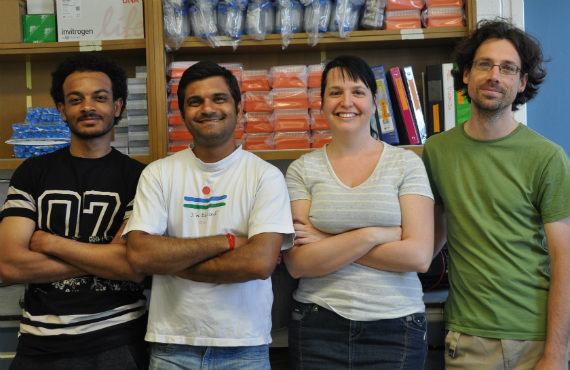 Research themes | mitochondrial researchMetabolic regulation is a key feature of all life, its deregulation leading to diabetes, cancer and neurodegenerative diseases in humans. At the cellular level, metabolism is regulated by mechanisms controlling the energy balance under changing nutrient availability. For example, a lack of nutrients triggers the activation of autophagy, which promotes the recycling of intracellular material within lysosomes, thereby providing a source of nutrient to keep the cells alive until nutrient supply is re-established. In parallel, changes in the structure of mitochondria optimize energy production. In fact, mitochondrial dynamics, the process of constant fusion and fission of mitochondria, has emerged over the last decade as an important regulator of key cellular processes such as stress responses, cellular differentiation and apoptotic cell death. For example, apoptosis requires mitochondrial fragmentation and the disruption of their internal structure (cristae). At the opposite end, we have recently shown that tightening of this internal mitochondrial structure is required to maintain cellular energy levels and viability of proliferating cells, with important implications for cancer biology. However, while mitochondrial dynamics are also clearly important in non-dividing cells such as neurons, their metabolic requirements are very different. The main goal of our research is to understand the mechanisms linking mitochondria, autophagy and metabolism in the regulation of neuronal survival. The first major theme of my laboratory is how AMPK, a kinase regulating metabolic stress, regulates mitochondrial function. A second important theme that we study is how loss of mitochondrial function is linked to changes in autophagy and lysosomal function, all of which are altered in neurodegenerative diseases. Marc Germain |Biography
|
||

